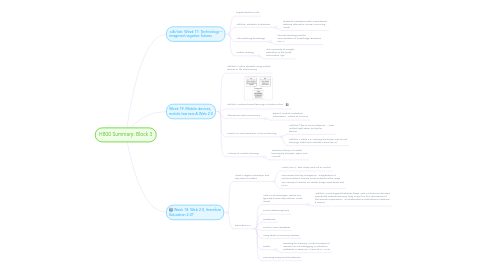
1. Week 17: Technology – imagined negative futures
1.1. Digital diploma mills
1.2. Students’ frustrations
1.2.1. Students’ frustrations with a web-based distance education course, Hara Kling (1999)
1.3. Administering knowledge
1.3.1. Internet teaching and the administration of knowledge, Brabazon (2011)
1.4. Further reading
1.4.1. The University of Google: Education in the (Post) Information Age
2. Week 19: Mobile devices, mobile learners & Web 2.0
2.1. Mature students using mobile devices in life and learning
2.2. Location-based learning, Kululska-Hulme
2.3. Affordances, data and privacy
2.3.1. Explicit, implicit contextual information, Verbert et al (2012)
2.4. Mobile 2.0 and ownership in formal learning
2.4.1. [u]se of social networks … does not feel right when led by the teacher
2.4.2. Mobile 2.0: crossing the border into formal learning? Pettit and Kukulska-Hulme (2011),
2.5. A theory of ‘mobile learning’
2.5.1. Towards a theory of mobile learning by Sharples, Taylor and Vavoula.
3. Week 18: Web 2.0, therefore Education 2.0?
3.1. What is digital scholarship and why does it matter?
3.1.1. Weller (2011), fast, cheap and out of control’
3.1.2. summarises the key changes as: • digitisation of relevant content • online social networks • the range and variety of content via Twitter, blogs, news feeds and so on.
3.2. Education 2.0
3.2.1. Web 2.0 technologies ‘realise four typically human dispositions, Crook (2008)
3.2.1.1. Crook argued that when these Web 2.0 tools are directed specifically towards learning, ‘they impact on four dimensions of the learner’s experience’: • Collaboration • Publication • Literacies • Inquiry
3.2.2. Social networking tools
3.2.3. Newfseeds
3.2.4. Tools to view newsfeeds
3.2.5. Using feeds in learning activities
3.2.6. Twitter
3.2.6.1. Tweeting for learning: a critical analysis of research on microblogging in education published in 2008–2011 (Gao et al., 2012).
3.2.7. Searching using social bookmarks
